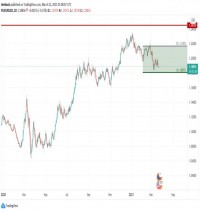|
Opalesque Industry Update – With the compliance deadline for one of the most complex regulatory reform agendas ever introduced into the asset management industry only seven months away, a KPMG International survey of more than 70 alternative investment fund managers reveals that nearly half have not taken any concrete steps to analyze the impact the Alternative Investment Fund Managers Directive (AIFMD) will have on their businesses, or to make changes to their operations. Today, the European Commission adopted the implementing rules for the Directive, which will now be subject to a three- or six-month scrutiny period by the European Parliament and the Council, and will enter into force, provided that neither co-legislator objects, at the end of this period. The Directive may have long-term implications for investment managers in the U.S. and globally, who are looking to raise capital in Europe. “Every asset manager worldwide who raises capital in the EU has to comply with AIFMD, including alternative investment managers based in the U.S.," said Mikael Johnson, Lead Partner of Alternative Investments for KPMG LLP U.S. “Yet many of these firms have taken no significant action, with the July 2013 deadline fast approaching. The time to prepare is now. Delaying preparations any longer may have significant negative impacts on their operations, fundraising activities and long-term profitability.” Despite the impending deadline to comply with the Directive, just 52 percent of Alternative Investment Fund Managers (AIFMs) surveyed have conducted an impact analysis that takes into account the advice from the European Securities and Markets Authority (ESMA), which was published in November 2011. In addition, 63 percent of those same AIFMs have not appointed a depositary, which is a key requirement of the legislation. The KPMG survey also found that nearly half (45 percent) of AIFMs surveyed say they have not yet considered how the Directive’s remuneration requirements will affect their businesses. And, two-thirds (66 percent) are waiting to see what is included in the final Implementing Measures from the EU before deciding how to proceed.
The time to act is now “The arguments in favor of getting AIFMD preparations underway as early as possible are compelling,” said Muller. “Those firms that have not already conducted an in-depth impact analysis of the AIFMD for their business would be well-advised to do so without delay, as the business implications are significant, the amount of work to be done is substantial and the timelines for preparation are becoming increasingly short,” Muller added. According to Johnson, the negative impact facing AIFMs that continue to delay their preparations for the Directive includes, but is not limited to, fundraising activities, operations and business models. Fundraising activities: AIFMs that fail to achieve compliance with the Directive by the July 2013 deadline will be prevented from raising new funds in Europe. If non-EU managers choose to follow those private placement regimes which remain in effect, investment managers need to be aware that these regimes are also changing (as of July 2013) by moving requirements closer to the provisions of AIFMD. Based on discussions with clients, many non-EU firms are not aware that the private placement regimes are changing along with the implementation of AIFMD. Firms that choose to wait to conduct their assessments and to embark upon their implementation plans are likely to find themselves racing against the clock and paying higher costs. Operations: The Directive will require AIFMs to introduce a host of operational changes to their businesses. The process of implementing these sweeping changes to areas such as leverage calculation, remuneration, reporting and others promises to be much more costly and complex for those AIFMs that continue to delay their preparation activities. Business Models: The AIFMD may also bring about significant changes to AIFMs’ business models, including the area of taxation. KPMG’s survey revealed 28 percent of respondents feel the Directive will have tax implications on some of their fund structures, while 8 percent said it will have a significant tax impact. The AIFMD is one of several high-profile regulatory programs AIFMs are being asked to implement over the next few years (e.g. the Dodd-Frank Wall Street Reform and Consumer Protection Act, CRD, MiFID). Delaying their preparations for the AIFMD may stress their capacity to simultaneously implement the other regulatory changes underway. KPMG International is a global network of professional firms providing Audit, Tax and Advisory services. We operate in 152 countries and have 145,000 people working in member firms around the world. The independent member firms of the KPMG network are affiliated with KPMG International Cooperative (“KPMG International”), a Swiss entity. Each KPMG firm is a legally distinct and separate entity and describes itself as such. www.kpmg.com Bg |
Industry Updates
KPMG: U.S. fund managers looking to raise assets in Europe should prepare for AIFMD now
Wednesday, December 19, 2012
|
|





 RSS
RSS







